Do Live-in Carers Stay Overnight? Understanding How Care Works at Home

Have you ever wondered what happens at night when you have a live-in carer? Families often ask whether live-in carers truly stay overnight, and what kind of support can be expected during those hours. It’s an important question, especially when night-time worries start to affect a loved one’s comfort and safety. At Home Instead South Lanarkshire, we often speak with families weighing up whether live-in care, overnight care, or 24-hour support is the best arrangement.
This blog takes a closer look at the differences, benefits, and practicalities, so you can make an informed choice with peace of mind.
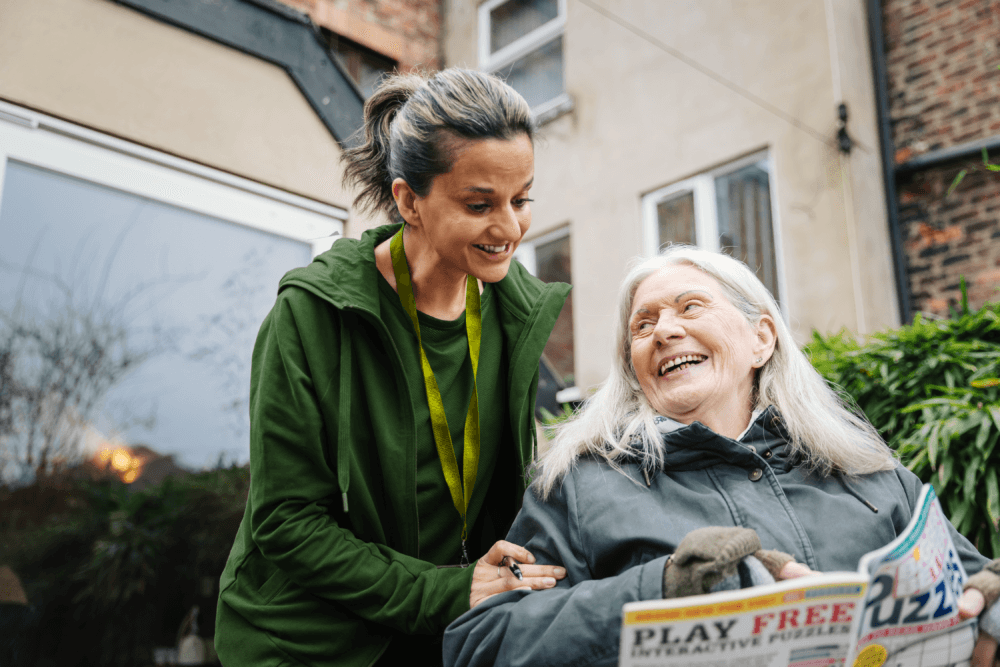
Do Live-in Carers Stay Overnight?
Yes, live-in carers do stay overnight. They live in your home and provide support around the clock. However, it’s important to understand how their time is structured:
- Working hours: A live-in carer typically works 8–10 hours spread throughout the day.
- Night-time presence: At night, they sleep in the home and can be woken if necessary.
- Occasional assistance: They may help once or twice during the night – for example, supporting a bathroom visit or offering reassurance if someone feels unsettled.
- Limits to overnight demands: Live-in carers are not expected to stay awake all night. If your loved one needs constant or frequent night-time attention, then 24-hour or waking night care may be the safer option.
This arrangement ensures the carer can provide consistent daytime support while still being available in emergencies at night.
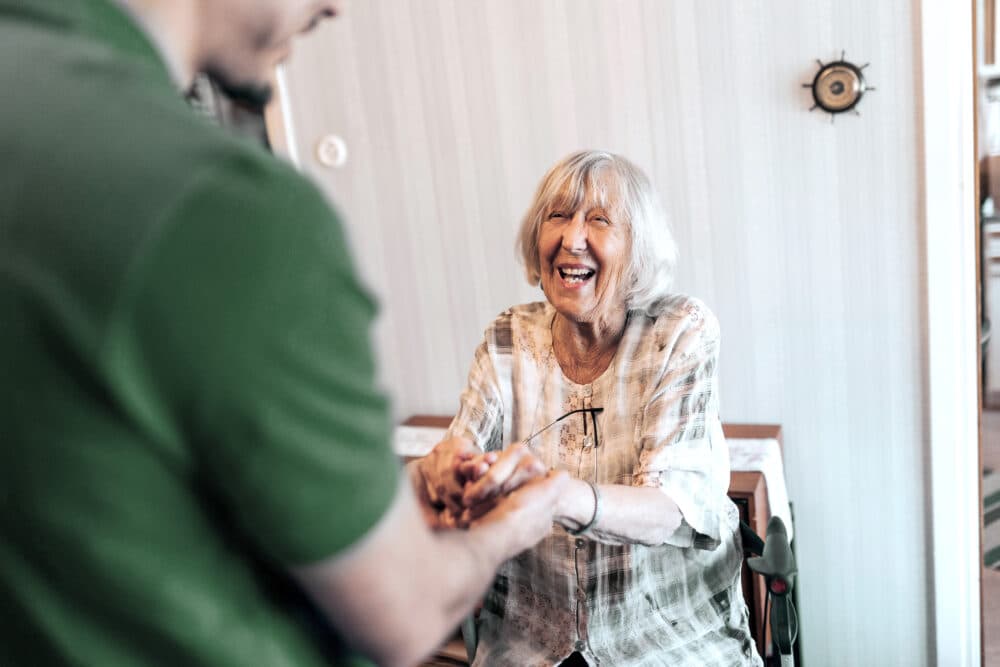
How Live-in Care Works in Practice
Live-in care is designed to give people the support they need while remaining in their own home. This can feel less disruptive than moving to a residential care facility. The carer usually has a private room within the home and becomes part of the household routine. Their role may cover:
- Personal care and health needs: Assistance with washing, dressing, toileting, and taking medication.
- Household tasks: Cooking, laundry, shopping, and light cleaning.
- Companionship: Sharing conversations, hobbies, and outings.
- Mobility and appointments: Helping someone get around safely and accompanying them to GP or hospital visits.
To ensure carers do not experience fatigue, many providers, including Home Instead, arrange a rotation system so that two carers alternate on a schedule – for example, one month on duty followed by time off.

What Is Overnight Care?
Overnight care is different from live-in care. It is a separate service for individuals who need more dedicated help at night. This service generally covers the hours from around 9pm until 7am, ensuring that a trained professional is awake or nearby to provide reassurance and practical assistance.
Types of Overnight Care
- Sleeping night care: The carer sleeps in the home and can be woken once or twice if needed.
- Waking night care: The carer stays awake all night, monitoring and providing care whenever required.
- Sitting service: A short-term arrangement where a carer stays overnight so a family caregiver can get a proper night’s rest.
Each option is tailored to different levels of need, from occasional wake-ups to continuous medical support.

Who Benefits Most from Overnight Care?
Overnight care can be especially valuable for:
- Dementia or Alzheimer’s: Many people experience restlessness, confusion, or wandering at night.
- Mobility challenges: Safe support for bathroom trips or turning in bed.
- Risk of falls: Immediate assistance reduces the risk of injury.
- Medical conditions: Regular medication, symptom monitoring, or emergency response may be required.
- Living alone: Overnight companionship helps ease anxiety and provides reassurance.
For families, overnight care can also bring relief. Knowing that a loved one is safe and supported allows relatives to rest and recharge.

Live-in Care vs 24-Hour Care
It’s easy to confuse live-in care with 24-hour care, but they are different arrangements.
| Aspect | Live-in Care | 24-Hour Care |
| Carers | One main carer lives in the home | Multiple carers working shifts |
| Working hours | 8–10 hours per day | Continuous cover in 8-hour shifts |
| Night support | Sleeping night cover, emergencies only | Awake and available all night |
| Continuity | Consistency with a familiar carer | Rotating team, less continuity |
| Best suited for | Day-to-day care, companionship, routine support | Complex needs or constant night monitoring |
If your loved one only wakes occasionally, live-in care may be enough. But for regular night-time needs, 24-hour care ensures uninterrupted attention.

The Benefits of Staying at Home with Overnight Care
For many families in South Lanarkshire, remaining at home is the preferred option. Overnight or live-in care supports this by offering:
- Familiar surroundings: Home comforts and routines remain unchanged.
- Independence: People retain control over their meals, routines, and visitors.
- One-to-one support: Care is tailored to one person’s needs.
- Reduced stress: Particularly reassuring for those living with dementia.
- Family reassurance: Relatives can rest knowing professional support is on hand.
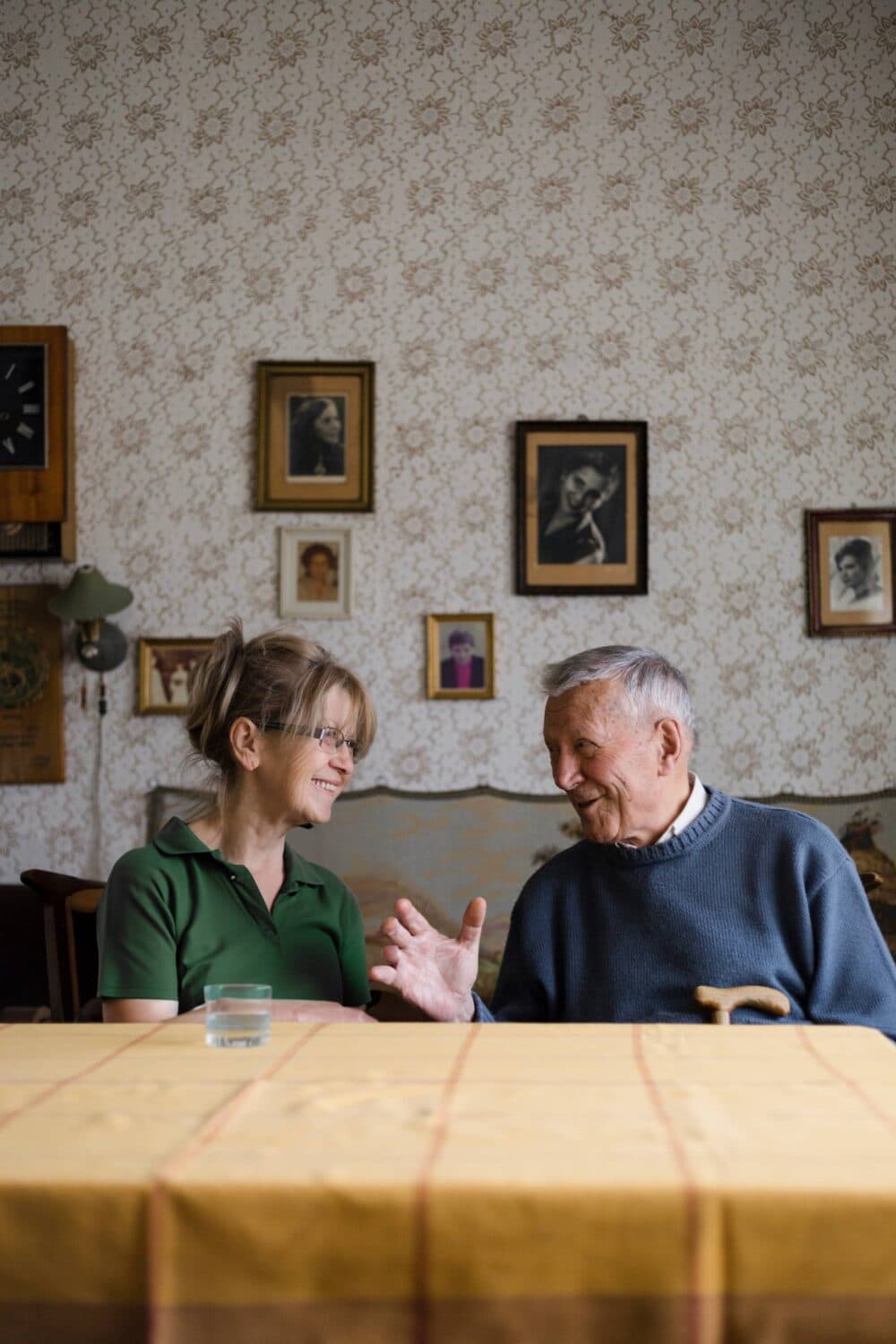
Training and Standards
Overnight and live-in carers are trained professionals. Depending on the agency, training may include:
- First aid and safeguarding.
- Dementia and Alzheimer’s care.
- Safe mobility support and use of equipment.
- Condition-specific training for illnesses such as Parkinson’s or diabetes.
In England, care providers are regulated by the Care Quality Commission (CQC), which ensures quality and safety. In Scotland, the Care Inspectorate fulfils this role, giving families in South Lanarkshire confidence in the support they receive.
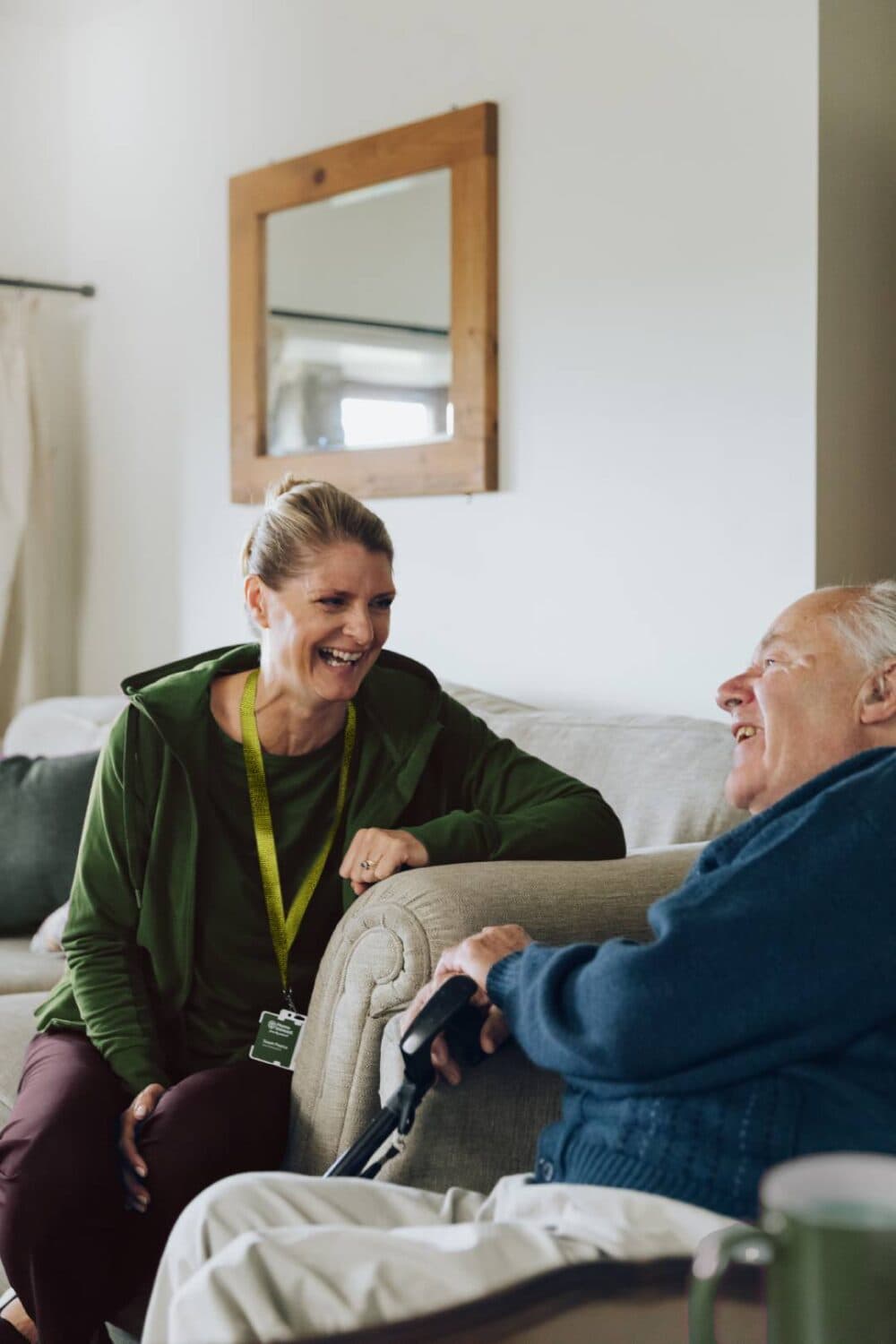
Costs of Live-in and Overnight Care
The cost of care depends on the level of support and where you live. Typical costs can include:
- Sleeping night care: £110–£230 per night.
- Waking night care: £180–£270 per night (often charged hourly).
- Live-in care: From around £910 per week.
Funding may be available through local authorities following an assessment, or via benefits such as Attendance Allowance. It is always worth checking what financial help may be available to you.

How to Arrange Overnight or Live-in Care
Arranging support usually involves:
- Initial conversation: Contacting a provider such as Home Instead South Lanarkshire to talk through your needs.
- Home assessment: A care manager visits to understand health conditions, daily routines, and personal preferences.
- Matching a carer: Finding a carer with the right skills and personality.
- Starting care: In urgent cases, support can often be arranged within 24 hours.
Many families choose to start with a trial period, which allows everyone to see how well the arrangement works before making a longer-term commitment.
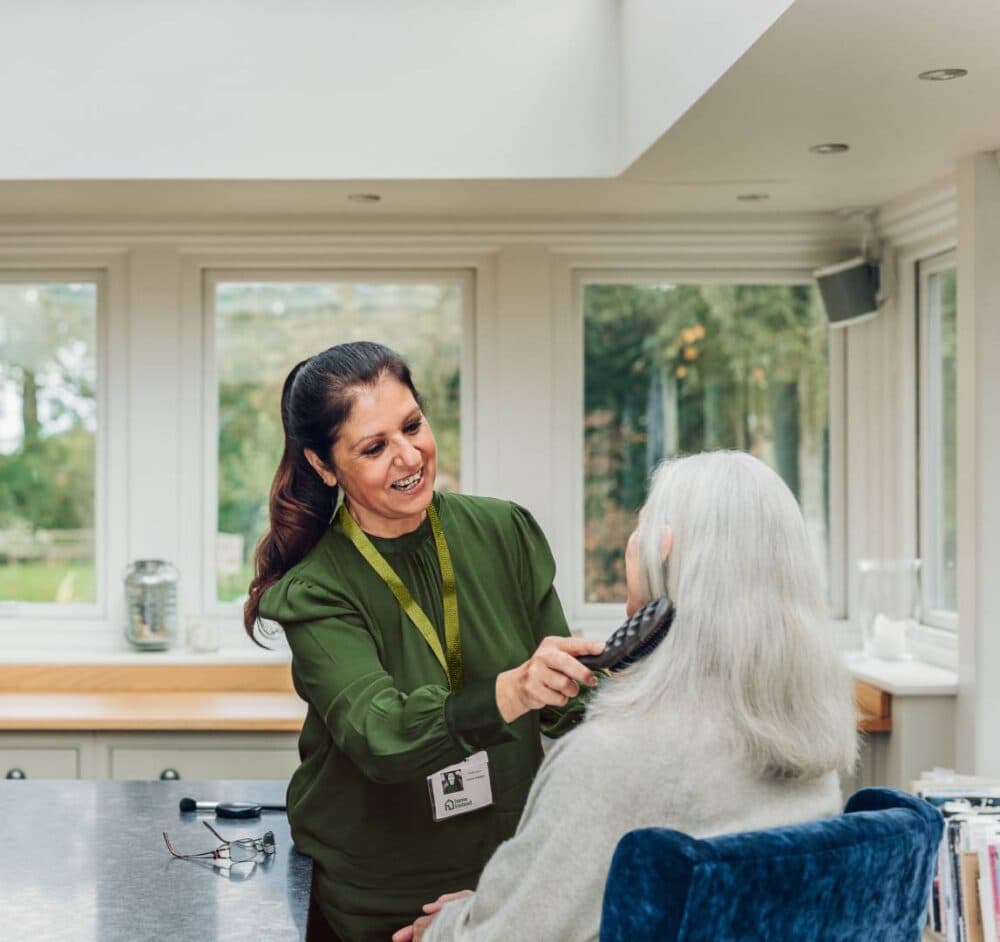
Family Experiences
Families often share how much of a difference overnight or live-in care has made. For some, it means peace of mind knowing someone is there to help during the night. For others, carers have provided companionship that helps reduce anxiety or supported with morning routines, making the start of each day calmer and more manageable.
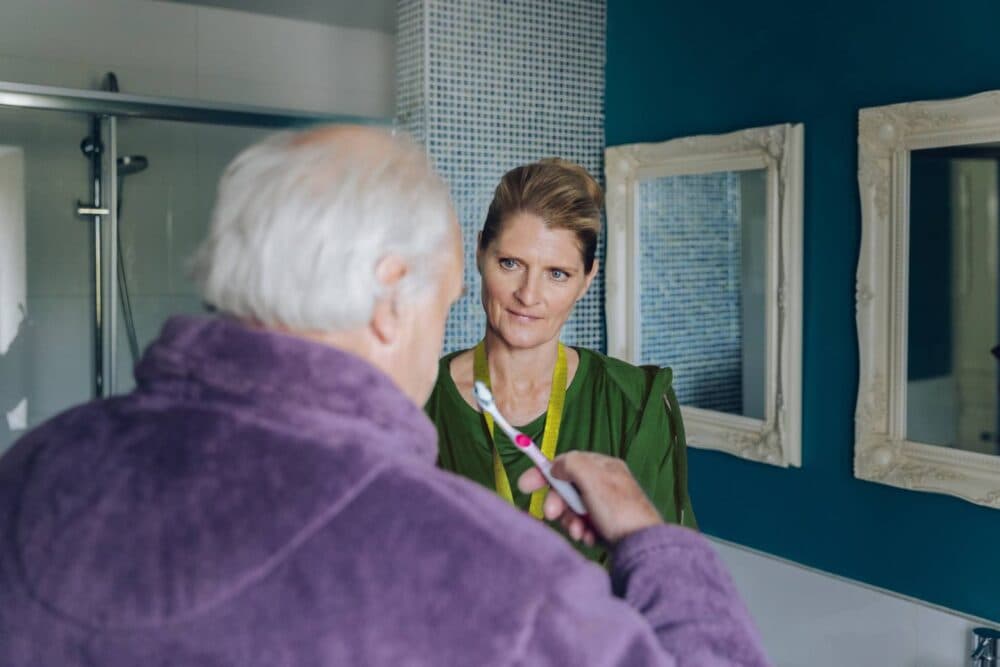
Deciding What’s Right for Your Loved One
When deciding between live-in care, overnight care, or 24-hour care, think about:
- How often your loved one wakes at night.
- Whether they have medical needs requiring constant monitoring.
- How important continuity with the same carer is.
- What budget and funding options are available.
- Their preference for remaining at home.
Each family’s situation is unique, and the right decision balances independence, comfort, and safety.

Conclusion
So, do live-in carers stay overnight? Yes, they do – but their role at night is generally limited to sleeping cover with help available if needed once or twice. For people who need frequent attention or constant monitoring, overnight care or 24-hour care may be more appropriate.
At Home Instead South Lanarkshire, we understand that choosing the right care arrangement is a deeply personal decision. Our team is here to guide you through your options, provide clear information, and help you find the support that gives both your loved one and your family peace of mind.
For more information about arranging live-in or overnight care, visit Home Instead South Lanarkshire.

Areas We Serve
Lanark, Carluke, Biggar & the surrounding areas
G75 0, G75 9, ML10 6, ML11 0, ML11 7, ML11 8, ML11 9, ML12 6, ML3 0, ML3 6, ML3 7, ML3 8, ML3 9, ML8 4, ML8 5, ML9 1, ML9 2, ML9 3
7 St Leonard St, Lanark ML11 7AB, UK
01555 700601